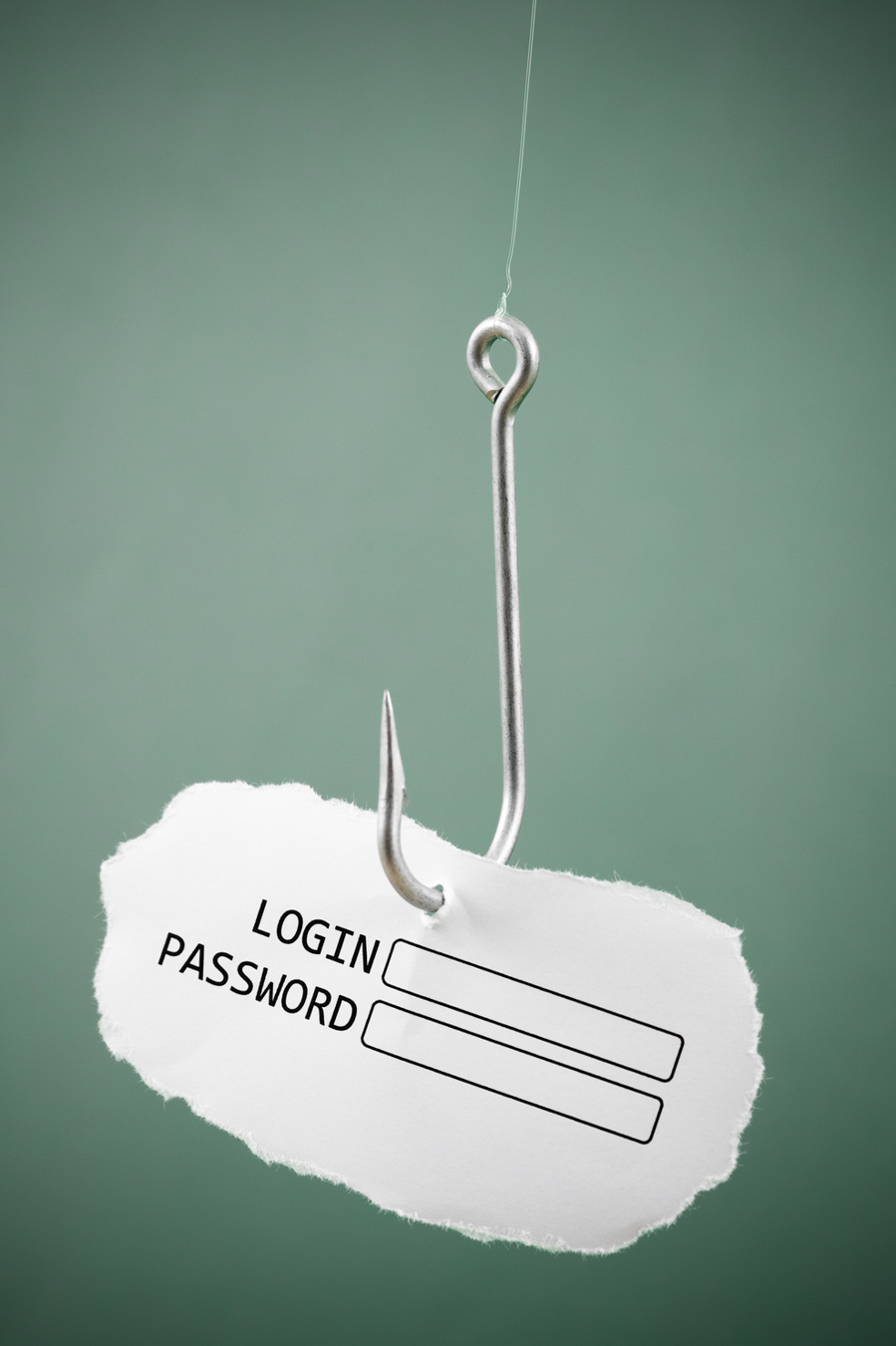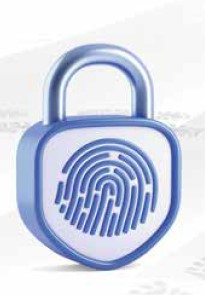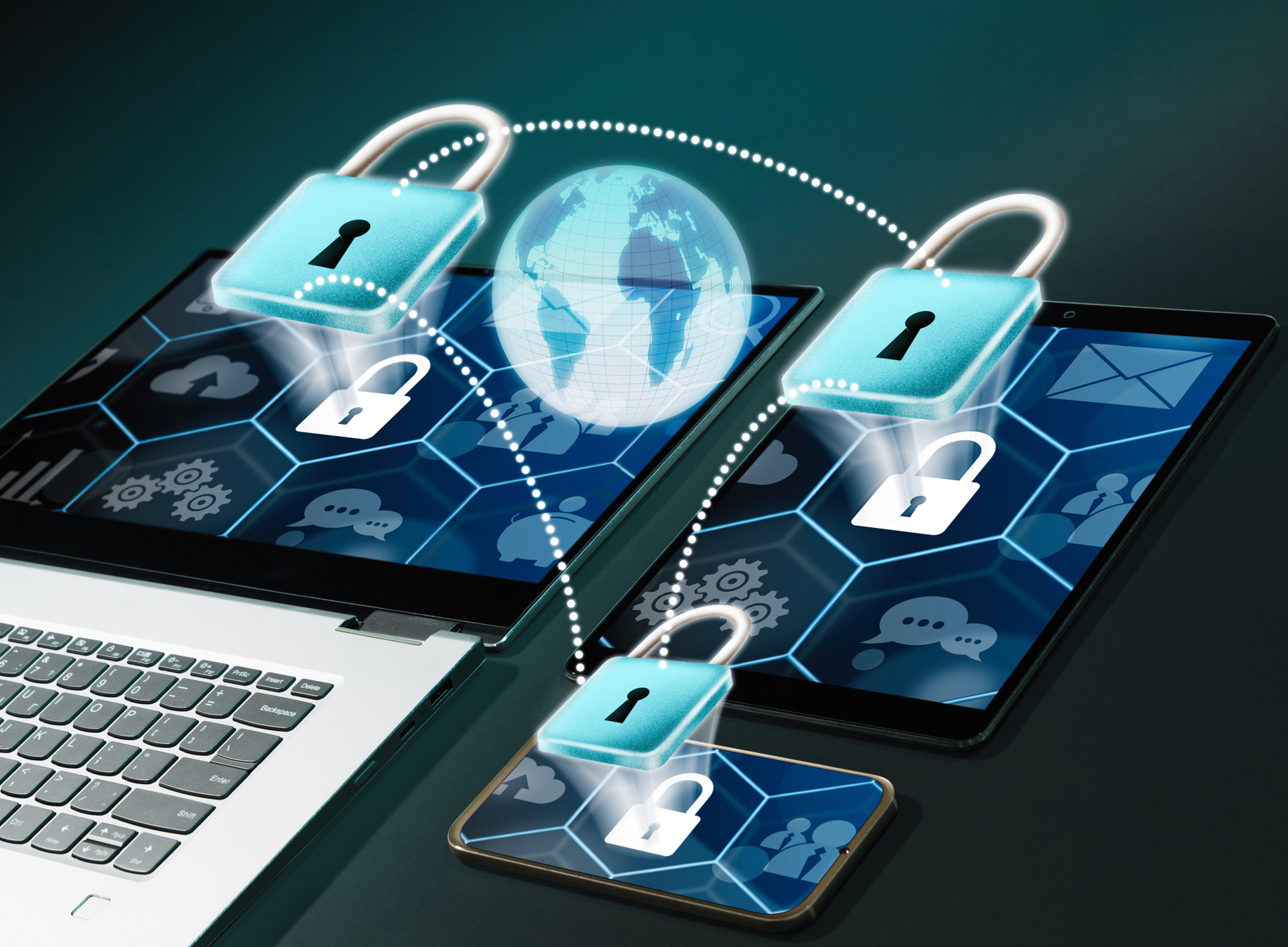In today's digital age, online safety is crucial. The Central Bank of Trinidad and Tobago urges all citizens to be vigilant against cybercrimes such as phishing, identity theft, internet fraud and banking fraud.
During the month of October, we shared a “Cybertip of the Day” with information and advice to help you to be more secure while browsing or conducting transactions online.
Click here to view our daily tips.
Follow these tips to learn how to protect yourself and your loved ones. You are also encouraged to review and practice the following quick guidelines to Online Safety!
1. Recognise Phishing Scams
“Phishing” refers to an attempt to steal sensitive information like usernames, passwords or credit card numbers to utilise or sell it. By presenting as a reputable source or trusted company with an enticing request, scammers lure in their victims like a fisherman using bait to catch a fish. These requests often come in the form of emails or text messages.
Look out for:
 |
•Requests for personal information: Legitimate organizations will never ask for personal information via email or text. •Urgent problems: Claims of account breaches or payment failures are common. Do not click on any links; instead, go directly to the organization's website. If in doubt, contact the organization directly using its official channels. •Suspicious URLs: Hover over links to see the actual URL. If it looks strange, don't click. •Spelling and grammar mistakes: These are red flags. |
Resources
Recognise Phishing Scam (Downloadable)
![]()
2. Stay One Step Ahead of Cybercriminals
Cybercriminals are constantly evolving their tactics, techniques, and procedures. The Central Bank of Trinidad and Tobago urges all citizens to be vigilant against cybercrimes such as phishing, identity theft, internet fraud, and banking fraud.
Here are some best practices to enhance your online security:
|
•Regular Software Updates: Always update your operating systems and applications to the latest versions to benefit from security upgrades. •Strong Passwords: Learn how to use digital technologies safely and responsibly. This includes practising good password hygiene, enabling multi-factor authentication, and being cautious about the information you share online. •Multi-Factor Authentication (MFA): Enable MFA on any account that offers it, to add an extra layer of security. |
 |
•Phishing Awareness: Be cautious of unsolicited emails, links, and attachments. Verify the source before clicking.
•Secure Wi-Fi Networks: Use strong passwords for your Wi-Fi networks and avoid using public Wi-Fi for sensitive transactions.
Resources
Stay One Step Ahead of Cybercriminals (Downloadable)
![]()
3. Protect Your Personal Information
One of the most efficient ways to protect your personal information is the use of strong, unique passwords and two-factor authentication wherever possible. Scammers use various tactics to attempt to steal your personal information. You can also consider using a reputable password manager. Be wary of:
 |
•Fake websites: Always check the URL with Bing or Google search engines before browsing the site or entering any personal information. You can also verify the security of websites (look for https:// as part of the URL). •Emails with links and attachments: If these appear suspicious, do not open attachments or click links. •Unexpected requests, such as unsolicited requests for personal data. •Social engineering: Scammers may use information about you to make their requests seem legitimate. |
•Public Wi-Fi Networks: Avoid conducting sensitive transactions on public Wi-Fi networks as these are sometimes compromised.
•Sharing on Social Media: Avoid revealing personal information such as your full government name, home address and phone number, which identity thieves can then use to create fake social media profiles or hack into your financial accounts.
Resources
Protect Your Personal Information (Downloadable)
![]()
4. Avoid Internet Fraud
Internet fraud can take many forms, such as:
|
•Identity theft: Scammers use another person's personal or financial information to commit fraud, such as making unauthorized transactions or purchases. •Romance fraud: Scammers create fake profiles on dating sites and social media, often providing inconsistent or vague stories about their lives. •E-commerce fraud – buying and selling of products and services through online/social media channels. Never send money to someone you have not met in person. Avoid in-person meetings with unverified merchants. |
 |
Trust your instincts and report suspicious behaviour to the Trinidad and Tobago Police Service's Cyber and Social Media Unit.
Resources
Avoid Internet Fraud (Downloadable)
![]()
5. Secure Your Online Banking
When conducting financial transactions online, pay close attention to:
 |
•Fake emails, WhatsApp or text messages: These may appear to be from your bank and ask you to click on a link or provide information. •Fake websites: Always log in through your bank's official website or app. •Public Wi-Fi Networks: Avoid using public Wi-Fi for financial transactions. |
•Monitor your account regularly for unauthorized activities and report any suspicious transactions immediately.
Resources
Secure Your Online Banking (Downloadable)
![]()
6. Protect Your Devices
Many of us use devices such as smartphones, laptops and smart TVs in our everyday lives. These devices can help us stay connected, entertained and productive, but they are not without risks. If a cybercriminal hacks your device, they may be able to access the sensitive information stored on it or the accounts it’s linked to. Be sure to:
|
•Use up-to-date antivirus and anti-spyware software to protect against malicious software (or malware). •Keep all software and operating systems updated: By installing the latest updates, you can reduce the risk of cyberattacks and protect your personal and business information. •Secure your home Wi-Fi network by changing the router username (default SSID) and password, and consider regularly updating your router. |
|
Resources
Protect Your Devices (Downloadable)
![]()
Video Resources
Avoiding Financial Scams in the Holiday Season
 |
|||
| Part 1 - Online Deals | Part 2 - Distant Relative | ||
| Part 3 - Fake Websites | Part 4 - Tips to Avoid Fraud |
![]()
Useful Links
Check out Anti-Fraud tips from the Bankers Association of Trinidad and Tobago
Cybercriminals are constantly evolving their tactics. Stay updated on the latest threats and protection measures by following our social media channels and checking this page regularly.
Remain Vigilant!




